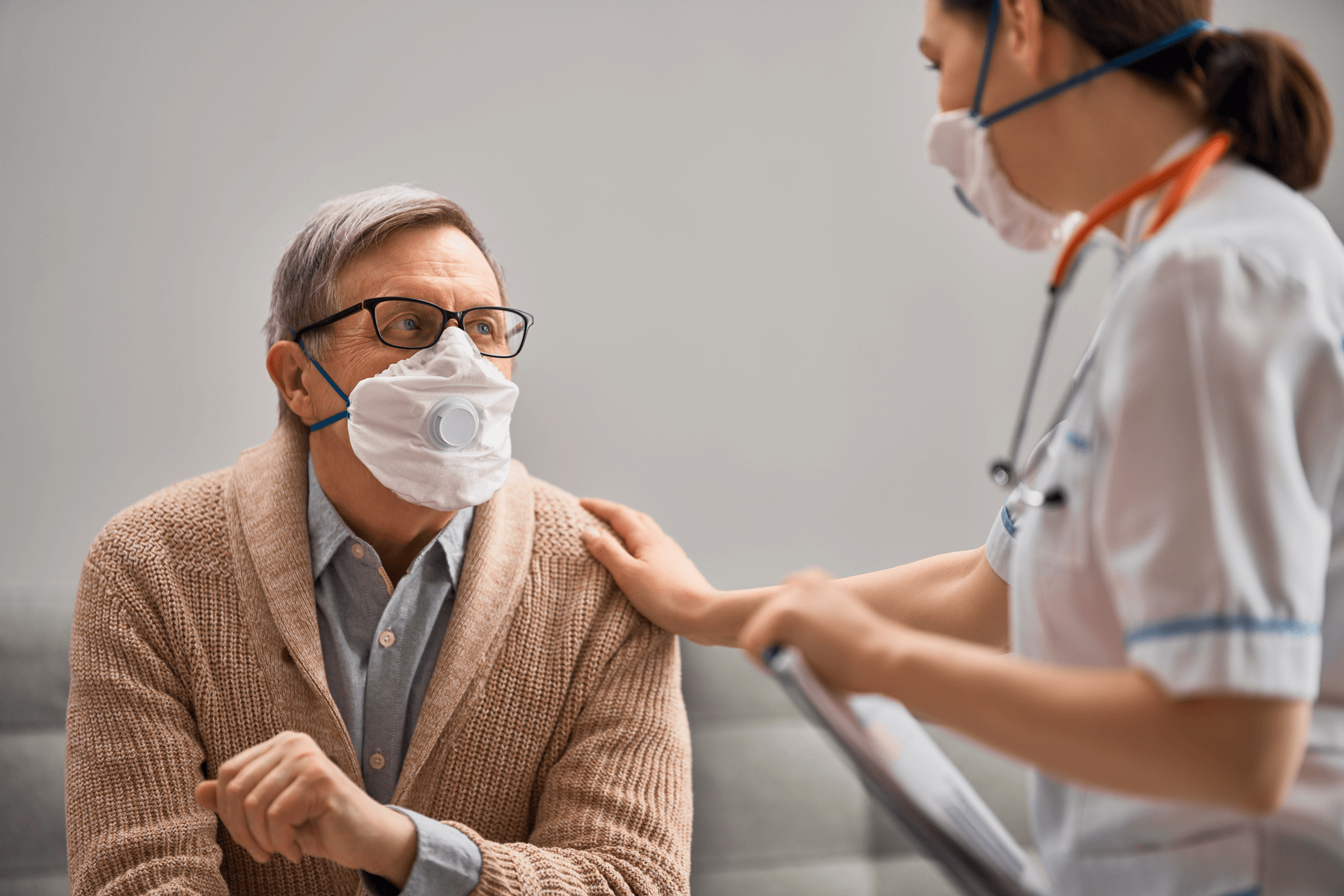
26 Jun 8 Safety Protocols That Rehab, Detox, and Recovery Facilities Must Follow
Table of Content
With the ongoing COVID-19 pandemic, you may be wondering if now is the right time to enter a drug treatment program. Right now, it’s normal to be anxious—and to be struggling. Beyond the threat of novel coronavirus, many are experiencing social isolation as a result of stay-at-home measures. Combined, these factors may worsen some individuals’ struggle with addiction.
This is why rehab, detox, and recovery facilities have been deemed an essential service and have stayed open throughout the public health crisis.
If you or a loved one is looking to enter a treatment program, rest assured that every rehab center is implementing stringent safety protocols to protect patients and staff from infection.
CDC, SAMHSA, ASAM
In this short post, we’ll go over the standards imposed by the Center for Disease Control, the Substance Abuse and Mental Health Services Administration, and the American Society of Addiction Medicine.
#1 Telehealth Evaluation
In accordance with SAMHSA guidelines, drug treatment facilities will conduct initial evaluations over telehealth tools including phone and video calls. This precautionary measure eliminates the need for a trip to an in-person facility, and serves as an opportunity to acquaint patients with current policies.
From there, you’ll determine along with your healthcare provider whether in-patient or out-patient treatment is a better fit for you.
#2 Screening Staff and Patients
Once a patient arrives on–site at an in-patient treatment facility, they should expect to be screened for COVID-19 symptoms and exposure. Strong screening is the backbone of all long-term healthcare facilities’ infection prevention and control (IPC) programs.
The ASAM requires the following procedures:
- All entrants to the building are screened for symptoms and recent contact with infected (or potentially infected) people
- Staff undergo routine symptom checks
- Symptomatic staff are required to stay home
Every treatment center reports data to the CDC’s National Healthcare Safety Network, both ensuring their compliance and helping keep track of the virus’ spread nationwide.
Because asymptomatic individuals can spread the coronavirus, screening is not enough. Detox facilities also take a number of steps to reduce the risk of transmission for all staff, patients, and other entrants to the premises.
#3 Physical Distancing
In all 50 states, businesses are required to maintain strict physical distancing whenever possible. Rather than asking patients to perform guesswork, treatment centers are rearranging their furniture and physical environments to make physical distance intuitive.
Measures include:
- Moving seating in common areas
- Maintaining strict social distance during communal dining, or in some cases, canceling it
- Creating a rotating schedule for some rooms and activities
- Providing reminders and signs
These precautions help to ensure that even if a patient or staff member is infected, the virus does not have the opportunity to spread widely.
#4 Ensuring Good Hygiene and Proper PPE
Cloth face coverings and face masks are a preventative measure to slow the spread of Coronavirus disease. Rehab facilities are required to provide facial coverings for staff and residents, as well as ample supply of hand soap and hand sanitizer.
They must also provide education on good hygiene practices:
- Wear a mask in the company of others
- Avoid touching your face
- Wash hands or use sanitizer frequently
In most states, staff and patients are required to wear masks when interacting with others.
During medical checkups and other instances of close-contact, medical personnel will wear more heavy-duty PPE, including:
- Medical-grade masks or visors
- Protective gowns
- Gloves
- Face shields or goggles
Facilities must provide these and keep an ample backup supply.
#5 Adjusting Group Programming
With social distancing comes a change to the format of group therapy and outings. If you’re looking forward to the communal aspect of rehabilitation, rest assured that group meetings are still possible, as long as they comply with federal and state guidelines.
The ASAM recommends that group treatment be kept to less than 10 people. However, as individual states reopen and social distancing guidelines relax, the CDC recommends a few modifications:
- Prioritize outdoor activities
- Create a rotating schedule so all interested patients can participate
- Provide additional PPE for accompanying staff if needed
#6 Disinfecting and Cleaning
Although recent research suggests that the risk of transmission from infected surfaces is low, treatment facilities are doing everything in their power to prevent this possibility.
- Residents are asked to come with fewer possessions, and to keep them in their rooms
- All communal spaces are regularly cleaned and disinfected
#7 Limiting Visitation
When you’re staying in a treatment facility for an extended period, it can be comforting to see familiar faces. Recovery programs understand the importance of friends and family, and will make sure you get to see and talk to them—without compromising others’ health.
- Some centers may prioritize phone and video visits
- Visits may take place outdoors
- All visitors will be screened for COVID-19 exposure and symptoms
#8 Developing a Plan for Symptomatic Staff and Patients
Prevention is everything, but residential facilities are federally required to have a plan in place in case a patient or staff member develops symptoms or tests positive for the virus.
- The IPC plan must have a detailed plan-of-action
- There must be enough space to quarantine and care for infected patients
- The health department must be notified of any known or suspected cases
- The rehab center should begin testing staff and residents, prioritizing those with known exposure or clear symptoms
Why You Shouldn’t Delay Treatment During The Pandemic
With these 8 safety protocols in place, rehab, detox, and recovery facilities are prepared to prevent and respond to cases of COVID-19.
If you’re thinking about delaying treatment, keep in mind that these regulations may be in effect for some time to come. Until a vaccine is developed, there’s a continued risk of community spread. However, even with these modifications, treatment programs are the best place to begin your recovery journey. While masks and social distancing may feel strange at first, they won’t affect the quality of your care, nor the importance of it.
If you’re struggling with drug or alcohol dependence, the time to act is now. With the country still slowly reopening, there’s never been a better opportunity to visit a treatment center and prioritize your health and well-being.
Georgia Drug Detox
Are you a Georgia resident looking for a detox program open during COVID-19? With 11 locations throughout Georgia, we’re here to help you get onto the path to recovery. Thanks to our strict adherence to coronavirus protocol, you’ll be able to take your first step safely during this hectic time.
Don’t allow the uncertainty of this era to get in the way of a brighter, healthier future. For safe and comfortable rehabilitation, we’re here to help. Reach out to us today.
Sources:
Harvard Healthy Publishing. A tale of two epidemics. https://www.health.harvard.edu/blog/a-tale-of-two-epidemics-when-covid-19-and-opioid-addiction-collide-2020042019569
SAMHSA. Considerations for the Care and Treatment of Mental and Substance Use Disorders in the COVID-19 Epidemic. https://www.samhsa.gov/sites/default/files/considerations-care-treatment-mental-substance-use-disorders-covid19.pdf
CDC. Preparing for COVID-19 in Nursing Homes. https://www.cdc.gov/coronavirus/2019-ncov/hcp/long-term-care.html
ASAM. Infection Control and Mitigation Strategies in Residential Treatment Facilities. https://www.asam.org/Quality-Science/covid-19-coronavirus/infection-mitigation-in-residential-treatment-facilities






No Comments